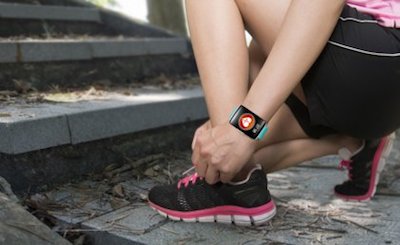 Academics in Australia at the University of Queensland have launched a three-year research project that will examine the impact of using digital health tools in physical education programs with kids. The project has received $177,000 AUS (about $137,000 US dollars) from the Australian Research Council Discovery Grant and is being conducted in collaboration with researchers in Melbourne and Illinois.
Academics in Australia at the University of Queensland have launched a three-year research project that will examine the impact of using digital health tools in physical education programs with kids. The project has received $177,000 AUS (about $137,000 US dollars) from the Australian Research Council Discovery Grant and is being conducted in collaboration with researchers in Melbourne and Illinois.
University of Queensland Associate Professor Michael Gard, who works in the School of Human Movement and Nutrition Sciences plans to research the philosophical and educational consequences of using the tech with kids in PE programs.
“Will we leverage the power of digital technology to expand student’s minds and open up choices about how to live, or will we use it to monitor students’ behaviour and tell them how to live?” Gard said in a statement. “For example, much of the health-related technology that we are seeing involves asking children to count the calories they consume or expend when they are exercising. Is this this what we want students to be doing at school?"
Researchers also plan to study how schools use digital health tools to measure students' health metrics, like their BMI, and what they do with the data after they collect it.
A number of digital fitness companies have launched digital health initiatives for kids. In January 2013, Konami, makers of popular video game Dance Dance Revolution, partnered with UnitedHealthcare (a division of UnitedHealth Group), to offer their DanceDanceRevolution Classroom Edition as a pilot in three schools in Florida, Georgia, and Texas.
There are a number of other digital health startups focusing on helping children reach a healthy weight as well -- MobiHealthNews rounded up a few of these in 2013.
Less than a year ago, one company focusing on childhood obesity, called Kurbo Health raised $5.8 million. Kurbo Health is developing a mobile-enabled program that aims to prevent childhood obesity, At the time, the company also announced that they had commercially launched their program for iOS users, which can cost anywhere from $10 a month to $75, depending on the plan chosen and amount of coaching included.

















